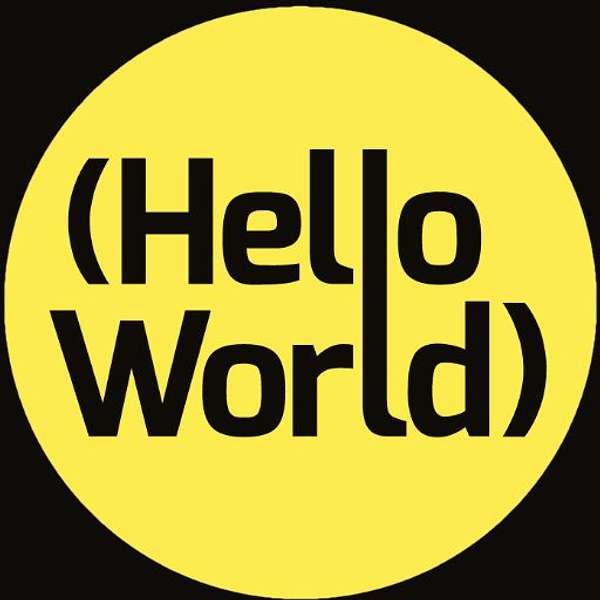
Hello World
Are you an educator who’s passionate about computing and digital making? If so, this is the podcast for you!
Join hosts from the Raspberry Pi Foundation as we chat with teachers, researchers, and learners from around the world to discuss the latest research, debate the big questions, and provide practical tips to help you engage and educate young people in computing. We’ll be releasing a new podcast series to coincide with each new issue of the Hello World Magazine to continue the conversation.
We’d love to hear from you! As we trial new episode formats, welcome additional hosts, and endeavour to produce regular episodes, we’d really appreciate your honest feedback about what you find informative, engaging, and, most importantly, helpful. Drop us an email on podcast@helloworld.cc and subscribe to the Hello World Magazine for free at http://helloworld.cc
Hello World
Hello issue 28: All about programming
Use Left/Right to seek, Home/End to jump to start or end. Hold shift to jump forward or backward.
The Editor of the Hello World Magazine shares what you can find in the latest issue of Hello World, 'Issue 28: Programming', and what to expect from our upcoming podcast mini-series.
Hello World and welcome to the podcast for educators passionate about computing and digital making. I'm Meg Wang, the editor of the Hello World magazine, and I'm just popping up in your podcast feed to let you know that a new issue of the Hello World magazine has just been published, and we've got three new podcast episodes coming your way over the next few weeks to continue the conversation started in the magazine. The issue's theme is all about programming, and in it we answer questions like "What's the future of programming?", "How can educators best teach it in schools?", "Does AI have a role in that?", and "How can educators make the transition from block- based to text-based programming easier for learners?" We take for granted all the clever creative programming that goes into the tech we use in our daily lives, but how do we best teach programming to support the next generation of innovators, and how do we support you, the amazing educators who are also trying to keep pace with the advancements in computer science and who want to inspire your students? We hope the magazine can help with just that. It's packed with advice, lesson plans, project ideas, and the latest research. And the podcast is here to continue the conversation started in the magazine and help you engage and educate your young people even more. We have three podcast episodes on the way for you. A Teacher Tips episode with computer science teachers around the world sharing their practical, actionable tips for teaching programming in the classroom. The second episode asks whether “vibe coding” has a role in programming education, and we hear from a university academic, a secondary school teacher, and a student who have each investigated the use of AI tools to support students learning to program. And the third episode is a fun discussion around the pros and cons of using Scratch Python, Java, and other programming languages to teach coding skills at different learning stages. To listen to these podcasts, just make sure you follow us or head to helloworld.cc/podcast And helloworld.cc is where you want to go to subscribe and read the latest issue of the Hello World magazine. If you're wondering which articles to read first, here are three of my highlights. My first is a thoughtful and inspirational article from Simon Peyton Jones from Computing at School, the subject association for computing education in the UK. Simon's article is on programming the future and how programming is really an act of creativity. We know that many educators have to step into the role of computer science educator with little to no prior experience in the subject. And my second highlight is an article sharing reflections from K-12 teachers on their experience of learning and teaching programming, with insights from both learner and pedagogical perspectives. And finally, my third highlight is an article that came out of my meeting with Kala Grice-Dobbins at the Computer Science Teachers Association conference in Cleveland this summer. Kala shares her step-by-step guide for writing a successful grant application, which can apply to anyone around the world. That's it from me. If you have a second to leave us a podcast review or share the magazine with a fellow educator, we'd really appreciate it. It really helps more people discover Hello World and the amazing work happening in computing education around the world. I hope you find the new issue of Hello World uplifting and useful, and that our content really helps you engage and educate young people in computer science. Bye!